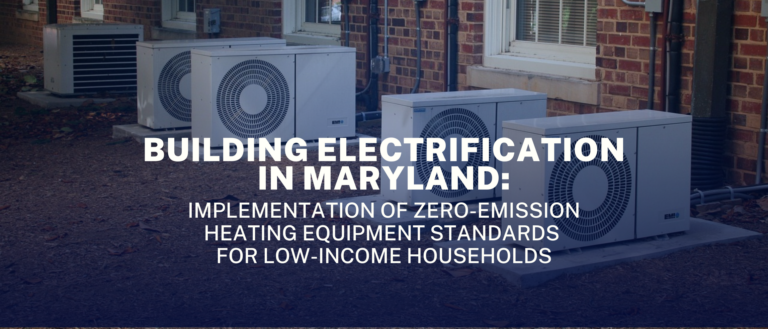This post was originally published on LPE Blog. Read the full post here.
Last month, Senator Ted Cruz introduced the SANDBOX Act, his controversial bill to subsidize the tech industry through systematic deregulation of AI. The bill purports to create something called a “regulatory sandbox.” The reality, though, is that it empowers an obscure White House bureau—the Office of Science and Technology Policy (OSTP)—to dole out nearly limitless exemptions from existing rules to individual businesses with little transparency, accountability, or oversight.
One need not be a policy wonk to recognize that the Act’s basic paradigm of using deregulation as a form of dispensing political favors is prone to abuse and antithetical to the rule of law. Yet Cruz’s bill is hardly on the vanguard. Rather, it follows in the well-trod footsteps of the current Trump administration, which has made the innovation of individualized exceptions and waivers one of the signature features of its governing approach.
Early in his administration, for instance, Trump made audacious use of a provision in the Clean Air Act that allows the president to temporarily exempt facilities from complying with the law’s toxic air pollution standards if technology for meeting those standards is not available and if doing so advances national security interests. Instead of passively receiving requests for these exemptions, as the law appears to contemplate, Trump officials actively solicited them, even going so far as to set up an email address (airaction@epa.gov) for industrial facilities to use to make the requests.
Even more brazenly, President Trump has started exempting individual firms from his (likely illegal) tariffs in exchange for political favors. The most prominent example came a few weeks ago when he temporarily exempted the pharmaceutical firm Pfizer from his 100-percent tariff on imported drugs. In return, the company agreed to charge state Medicaid programs lower prices for certain of their products.
On top of all of this, the Trump administration has used the promise of suspending enforcement actions against a wide variety of actors—including, most notably, universities and law firms—to secure greater control over them.
Showing 2,942 results

James Goodwin | October 27, 2025
The current Trump administration has made individualized exceptions and waivers one of the signature features of its governing approach.

Federico Holm, James Goodwin | October 16, 2025
The Congressional Review Act (CRA) provides the U.S. Congress with an expedited procedure to review and potentially overturn final rules issued by federal agencies. Despite being touted as a critical avenue for congressional oversight, the CRA is often deployed as a partisan tool that replaces agency expertise and democratic consideration with political maneuvers and slim voting majorities. The use of the CRA in the current Congress so far has shown us how easy it is to misuse “resolutions of disapproval”—the specialized form of legislation it creates—both in numbers and the scope of its application.
Federico Holm | October 15, 2025
Since Day One, the Trump administration has aggressively pursued policy actions that match the recommendations contained in Project 2025. We have been tracking the administration’s actions since February, and our Executive Action Tracker (jointly maintained by the Center for Progressive Reform and Governing for Impact) highlights the speed and effectiveness with which the administration has advanced Project 2025’s goals.

Bryan Dunning, Christopher Stix | October 14, 2025
In the past year, Maryland residents have seen their heating bills skyrocket, which has largely been tied to increased costs of methane gas distribution. These costs are expected to worsen as increased spending on the distribution system must be repaid over the next several decades. At the same time, greenhouse gas emissions from burning fossil fuels in the home contribute substantially to climate change, and pollution from fossil fuel heating also has a substantial impact on residents’ health. In a new report published today, we explore policies designed to tackle these challenges and provide analysis and recommendations on how to make the transition to updated heating technologies and building electrification more equitable and effective for low-income Marylanders.

Minor Sinclair | October 7, 2025
The Presidential Memorandum (NSPM-7) on Countering Domestic Terrorism and Organized Political Violence released last week pushed the United States one step closer to a country where the right of freedom of speech and peaceful protest no longer exists.

Federico Holm, James Goodwin | September 15, 2025
To say that the policy priorities of the Trump administration represent a U-turn from the Biden administration is a severe understatement. The recent release of the long-awaited Spring 2025 Regulatory Agenda — the first of the current Trump administration — provides us with our first concrete picture of just how far the regulatory policy pendulum is going to swing. From climate and energy to public health, the current administration is systematically undermining important advancements achieved during the previous cycle.

James Goodwin | September 3, 2025
Public participation is a defining feature of the modern administrative state. One of administrative law’s functions is to ensure meaningful participation by relevant stakeholders. Importantly, as the public’s expectations of and demands for what participation mechanisms are meant to accomplish have evolved, policymakers and the courts have updated administrative law requirements and doctrines.

Catalina Gonzalez, James Goodwin | August 26, 2025
Last week, the Environmental Protection Agency (EPA) hosted four days’ worth of hearings to gather public testimony on its proposal to rescind the 2009 endangerment finding and the suite of existing greenhouse gas (GHG standards for cars and trucks that the finding supplies the legal justification for. The vast majority of the participants testified in strong opposition to the proposal, and included a broad cross-section of our society: faith leaders; a high school student; community organizers; and concerned grandparents.

Daniel Farber | August 21, 2025
Not that long ago, conservatives demanded that the government balance costs and benefits. They still do, but with a twist: They demand special limits on consideration of environmental effects. But that makes no sense. Whatever rules we have about costs should apply to all types of costs, and the same with benefits. The result of skewing the analysis is, not surprisingly, that we get conservative results more often.